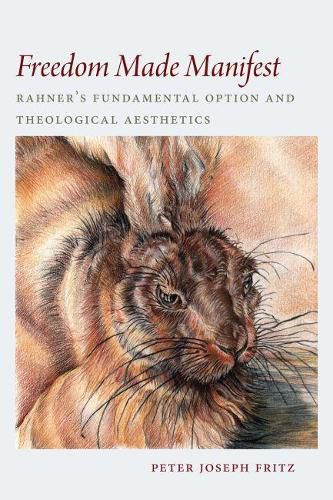Readings Newsletter
Become a Readings Member to make your shopping experience even easier.
Sign in or sign up for free!
You’re not far away from qualifying for FREE standard shipping within Australia
You’ve qualified for FREE standard shipping within Australia
The cart is loading…






Karl Rahner’s seemingly inscrutable theology of freedom can be summarized simply: human freedom makes manifest (or fails to make manifest) God’s eternal decision to create, to save creation, and thereby to share Godself. Freedom is something real, a substantive freedom for: for saying
yes
to God’s merciful self-giving. This freedom most often comes to light not in extraordinary triumphs of spirit, but amid small acts whereby common sinners and downtrodden people travel a pilgrim journey, gradually finding ways to form and to express a life that reflects -however dimly? God’s refulgent light.
Freedom Made Manifest explicates Rahner’s theology of freedom by elucidating its configuration and sources. Much of its inquiry centers on the fundamental option: each human person’s eternal decision made, paradoxically, in time, as a definitive answer to God’s personally-tailored call to salvation. This idea stems from three principal sources: Catholic conversations with transcendental-idealist philosophy, penitential theology and practice, and Ignatian spirituality. Rahner’s unique redeployment of these sources inflects the fundamental option with theologies of concupiscence, mercy and forgiveness (especially as ecclesially mediated), and devotion to Jesus Christ. Awareness of these inflections can show how Rahner’s theology of freedom may assist in theological reflection on freedom’s susceptibility to injury and trauma.
To these clarifications the author adds a major emendation, arguing that Rahner’s theology of freedom is most adequately interpreted as a theological aesthetic of freedom, attentive to freedom’s depth dimension in the heart of each person, through which and out of which God’s free decision to self-reveal is expressed or concealed. Following upon Karl Rahner’s Theological Aesthetics (CUA Press, 2014), which introduced Rahner’s
Catholic sublime,
and anticipating a volume on
world,
this volume contributes to theological-aesthetic thinking not at the stratospheric level of being’s transcendentals, but within the sensed (aesthetic) friction of everyday existence.
$9.00 standard shipping within Australia
FREE standard shipping within Australia for orders over $100.00
Express & International shipping calculated at checkout
Karl Rahner’s seemingly inscrutable theology of freedom can be summarized simply: human freedom makes manifest (or fails to make manifest) God’s eternal decision to create, to save creation, and thereby to share Godself. Freedom is something real, a substantive freedom for: for saying
yes
to God’s merciful self-giving. This freedom most often comes to light not in extraordinary triumphs of spirit, but amid small acts whereby common sinners and downtrodden people travel a pilgrim journey, gradually finding ways to form and to express a life that reflects -however dimly? God’s refulgent light.
Freedom Made Manifest explicates Rahner’s theology of freedom by elucidating its configuration and sources. Much of its inquiry centers on the fundamental option: each human person’s eternal decision made, paradoxically, in time, as a definitive answer to God’s personally-tailored call to salvation. This idea stems from three principal sources: Catholic conversations with transcendental-idealist philosophy, penitential theology and practice, and Ignatian spirituality. Rahner’s unique redeployment of these sources inflects the fundamental option with theologies of concupiscence, mercy and forgiveness (especially as ecclesially mediated), and devotion to Jesus Christ. Awareness of these inflections can show how Rahner’s theology of freedom may assist in theological reflection on freedom’s susceptibility to injury and trauma.
To these clarifications the author adds a major emendation, arguing that Rahner’s theology of freedom is most adequately interpreted as a theological aesthetic of freedom, attentive to freedom’s depth dimension in the heart of each person, through which and out of which God’s free decision to self-reveal is expressed or concealed. Following upon Karl Rahner’s Theological Aesthetics (CUA Press, 2014), which introduced Rahner’s
Catholic sublime,
and anticipating a volume on
world,
this volume contributes to theological-aesthetic thinking not at the stratospheric level of being’s transcendentals, but within the sensed (aesthetic) friction of everyday existence.